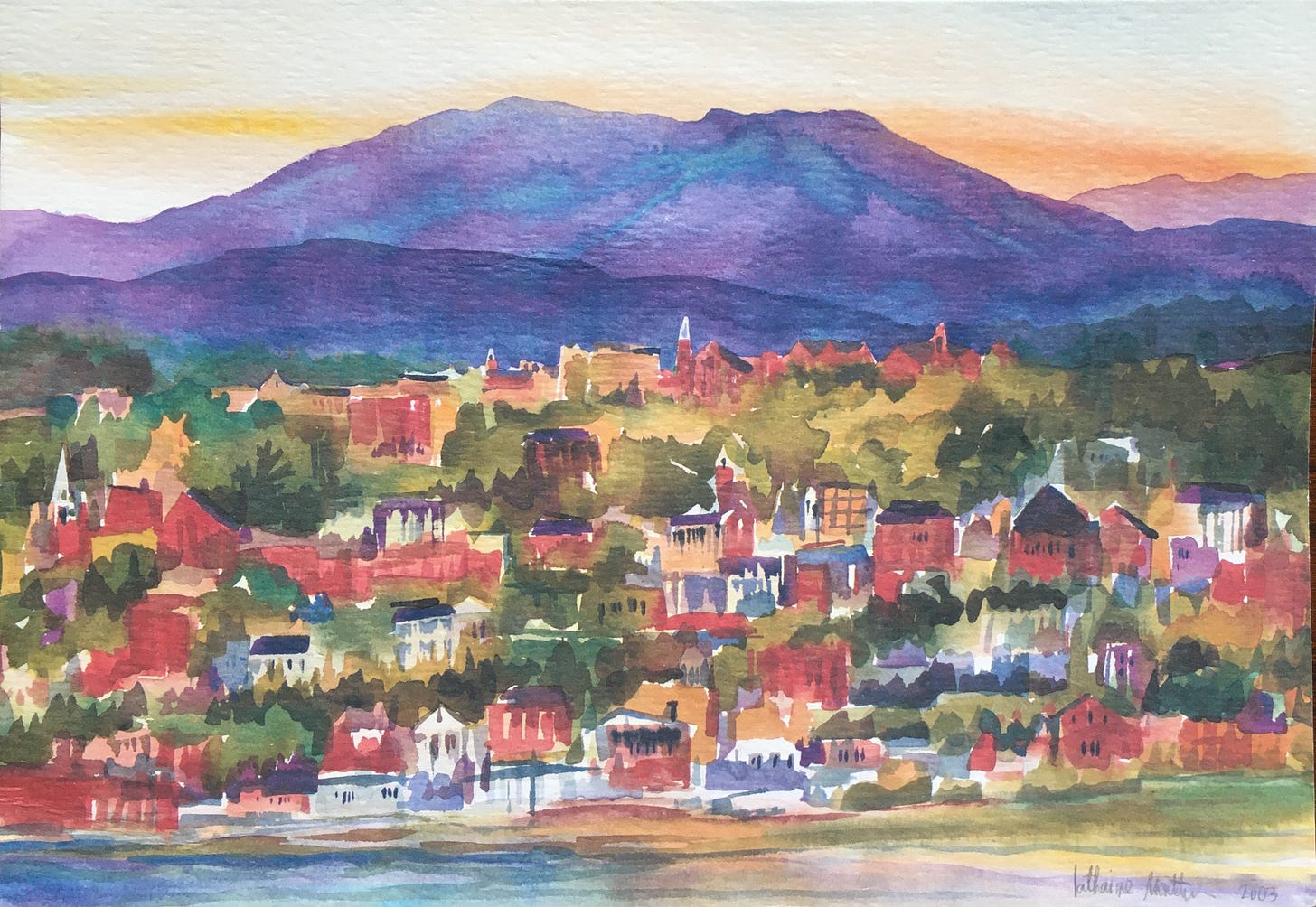“As you simplify your life, the laws of the universe will be simpler.” Henry David Thoreau
I left Mississippi completely and forever in January of 2007. I sold my home, most of my belongings, and packed up much of what was left, or what I deemed necessary, in my ten-year-old Jeep Cherokee for my destination of Burlington, Vermont. I chose Burlington for a number of reasons.

First, I learned of this small city thanks to the urban studies theorist Richard Florida1 and his research and creation of the “Gay Index,” where he showed a correlation between tolerance and acceptance of the LGBTQ+ community and a city’s economic prosperity and well-being. Burlington ranked high for a mid-sized city on the Gay Index and in several other categories that contributed to a community’s overall flourishing.
I was also attracted to two archetypal qualities of New Englanders, whether real or romanticized — frugality and lack of bravado. The thought of these characteristics beckoned to me as I desired to simplify my life and quiet my own soul so that I might hear what it had to say and determine how to be true to what I heard. I believed that if I could soften my ego and external attempts to be someone I was not, I would be able to excavate what was essential internally and take real steps into what had for thirty-five years felt like fantasy.
And as I was venturing into the unknown on so many levels, I felt it would be important to have at least some structure. As I did more and more research on Burlington, I discovered the vibrant campus of higher education that sits just above the city center: The University of Vermont and its Gund Institute for Ecological Economics.2 I enrolled in a couple of classes through the university’s continuing education department. These cutting-edge classes in a field called Ecological Economics focused on how to more effectively value our economic systems while caring for our environment and the well-being of our communities.
In addition to reading Thoreau, I had also discovered some other “back to the land” authors like Scott and Helen Nearing and their book Living The Good Life, and Richard Gregg who coined the term and wrote about “voluntary simplicity.” All of these trailblazers either settled or lived in Vermont for some period of time. Ironically, Gregg had also served as Executive Director of Pendle Hill, the Quaker education center outside of Philadelphia, Pennsylvania, which I visited the year before.
Speaking of Quakers, also known as the Religious Society of Friends or just “Friends,” I was pleased to discover that Burlington had a congregation, or more appropriately, a “meeting” of Friends. Even as I now had a pretty strong critique of religion in general and Christianity in particular, I was still open to and somewhat intrigued by the Quakers’ “unprogrammed” approach of gathering together. No one preached, read scripture, or led others in prayer or song. Quaker “worship” is more like sitting in silence with other people and listening for “that still small voice,” whether one attributes that to “God” or to one’s inner voice or truth. I looked forward to sitting with others in that silence in New England, and listening for what I might hear.
*Thanks for reading and/or listening. Continue to next post Listen. To read from the beginning please go to Why I'm Writing.
Have thoughts, questions, or feedback? Please comment — it means a lot to hear from you on this mostly solitary and introspective writing journey that I’m on.



